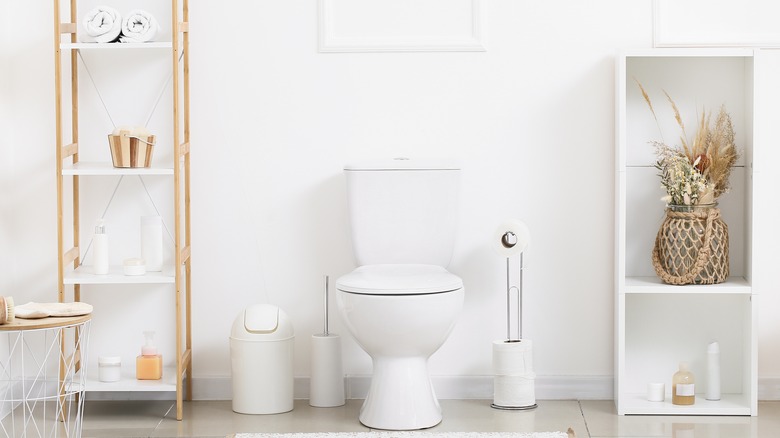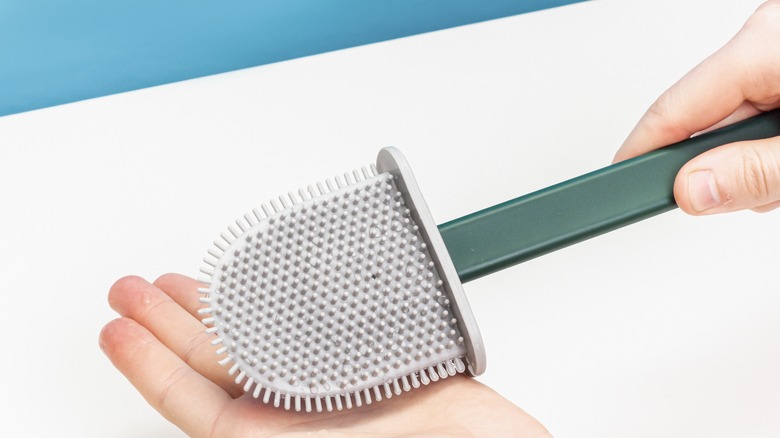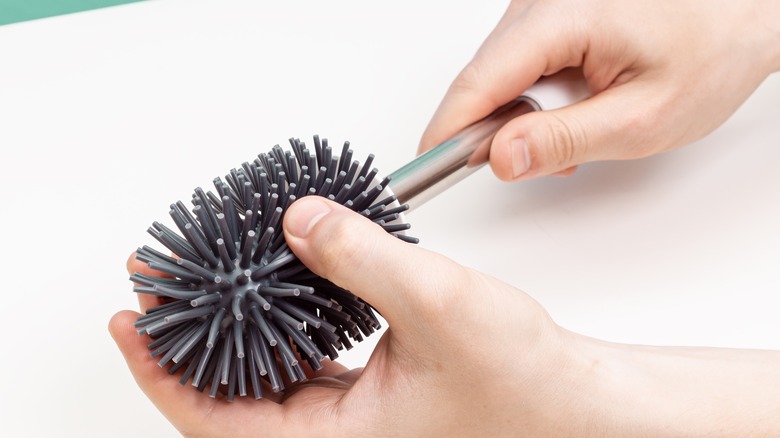Why You Should Be Using A Silicone Toilet Brush
It's time to throw away your old plastic toilet brush and trade it for a silicone toilet brush. There are two different types of silicone toilet brushes that you can purchase. The first is very similar to a standard toilet brush. The only difference is that instead of the bristles being made of plastic or a natural material, they are made of silicone, as per Expert Reviews.
The second type of silicone toilet brush is the spatula-shaped brush, which is flat with short bristles. This type of brush is better at scrubbing tough dirt from the bowl. Some spatula-style silicone brushes even have a long edge on the side that is perfect for removing the hidden grime from underneath the rim of the toilet bowl. Silicone toilet brushes work just as well, if not better than plastic toilet brushes, and their biggest benefit is that they are more hygienic. But that's not the only reason you should make the switch.
Less bacteria growth
Unlike toilet brushes made of plastic or natural materials, silicone toilet brushes will not harbor bacteria. These other types of toilet brushes are made of porous materials that bacteria can hide in and grow. Silicone toilet brushes are not porous so they can be rinsed clean without having to worry about bacteria hiding in any nooks and crannies. Microbiologist Jeremiah Johnson confirmed to Scribe that silicone toilet brushes don't attract harmful microorganisms like E. coli, making them a more hygienic choice.
Other toilet brushes also hold water, which will then create a puddle in the toilet brush holder. When the toilet brush is left in a wet toilet brush holder, bacteria and mold will start to grow. This is because the bristles are never able to completely dry between uses. Silicone brushes are the better choice because they don't hold onto water the same way. Instead, they repel the water off the bristles, and with a quick shake, can be put back into the toilet brush holder fairly dry.
Will last longer
Silicone toilet brushes also last longer than other types of toilet brushes. Since they don't absorb water and their bristles are placed farther apart, they are easier to clean. Instead of having to replace the toilet brush when it gets too dirty, silicone toilet brushes can be regularly cleaned and disinfected, giving them a longer lifespan. Silicone toilet brushes are also stronger than plastic toilet brushes because they won't break down when you use harsh cleaners in your toilet.
Before putting your silicone toilet brush back in the holder, always give it a shake to remove any excess water. Then, when you need to clean it, you can use a mild detergent like dish soap along with water, according to The Cleaning Habit. For times that you want to do a deeper clean, you can sanitize a silicone toilet brush by placing it into boiling water for at least three minutes. We'd recommend having a separate pot that you use only for sanitizing your toilet brush.


